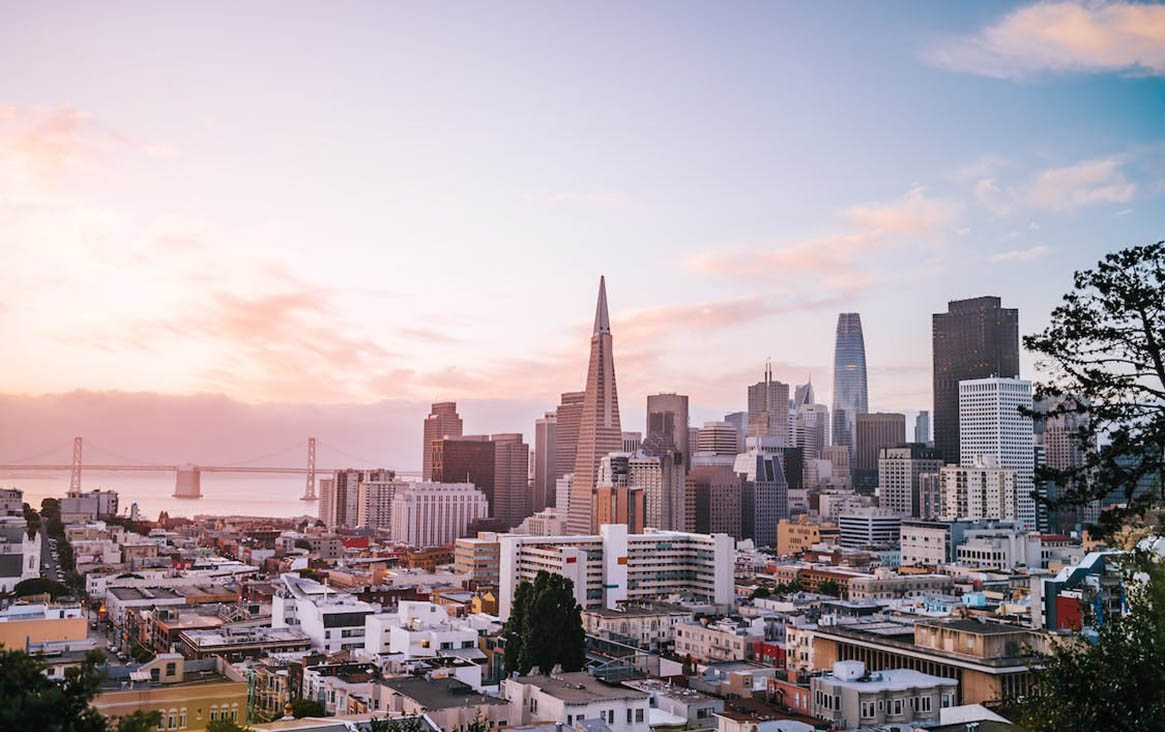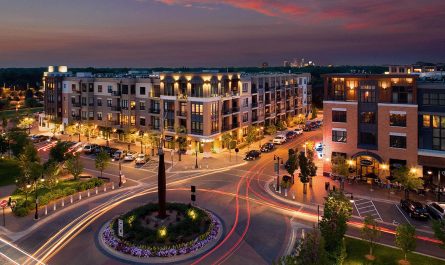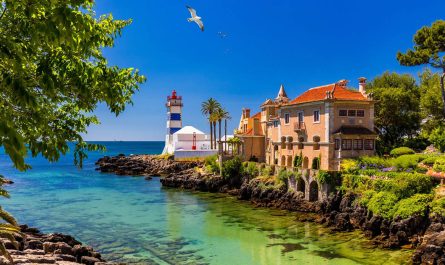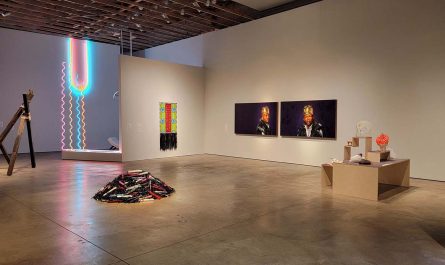My recent sojourn led me to the enchanting city of San Francisco, a place where the echoes of history resonate through its iconic landmarks.
Alcatraz Island: The Alcatraz Federal Penitentiary
Perched majestically in the heart of San Francisco Bay, Alcatraz Island unveils the grim legacy of the Alcatraz Federal Penitentiary, famously known as “The Rock.” Stepping onto this solitary isle, an immediate and haunting atmosphere enveloped me, transporting me to an era of strict confinement and echoing with the stories of those who once called it home. The audio tour, narrated by former inmates and guards, transformed my visit into a spine-chilling exploration of the prison’s haunting history. The journey through the cell blocks and remnants of the prison hospital exposed the harsh conditions endured by its inhabitants, providing a visceral realization of the struggles within those formidable walls.
Alcatraz is an essential pilgrimage for history enthusiasts, not solely for its prison history but also as a former military fortress. The ferry ride to Alcatraz offers not only access to the island but a panoramic spectacle of the city’s skyline and the iconic Golden Gate Bridge. The juxtaposition of this historical enclave against the modern backdrop creates a poignant visual narrative, underscoring the multifaceted role Alcatraz played in shaping American history.
The audio tour adds a layer of depth to the experience, allowing visitors to immerse themselves in the narratives of the past. However, the logistical challenges are tangible; securing tickets can be a daunting task due to the high demand. The island’s accessibility is weather-dependent, and long queues during peak seasons present a drawback. These challenges, while demanding strategic planning, do little to diminish the allure of this historical gem.
Located on Alcatraz Island in San Francisco Bay, access is exclusive and limited to ferries departing from Pier 33. To embark on this historical odyssey, reservations are not just advisable but essential. Alcatraz Cruises’ official website emerges as the go-to platform for securing tickets, providing a reliable avenue for ensuring a coveted spot on this immersive journey. Limited discounts for seniors, children, and military personnel underscore the importance of early planning and booking.
In reflection, Alcatraz surpassed my expectations, plunging me into the dark annals of American history. The resilience of the human spirit, palpable within the confinements of Alcatraz, stands as a testament to the indomitable will to survive. It’s not merely a prison; it’s a living chronicle of stories etched within its walls—stories of defiance, struggle, and the unyielding pursuit of freedom. Alcatraz, with its stark beauty and haunting tales, remains an emblem of the complex and profound tapestry of American history.
Golden Gate Park: Conservatory of Flowers
Nestled within the vast embrace of Golden Gate Park, an urban sanctuary unfolds, revealing the enchanting Conservatory of Flowers—a Victorian-era greenhouse that effortlessly transports visitors to a bygone era. Stepping into this botanical haven, the intricate architecture and the vibrant kaleidoscope of exotic plants immediately weave a mesmerizing tapestry of natural beauty. Dating back to 1879, the conservatory not only showcases botanical marvels but also carries the weight of historical significance, adding an extra layer of charm to the overall experience.
The park itself extends a warm welcome, offering a plethora of attractions, from museums and gardens to the unexpected delight of bison paddocks.
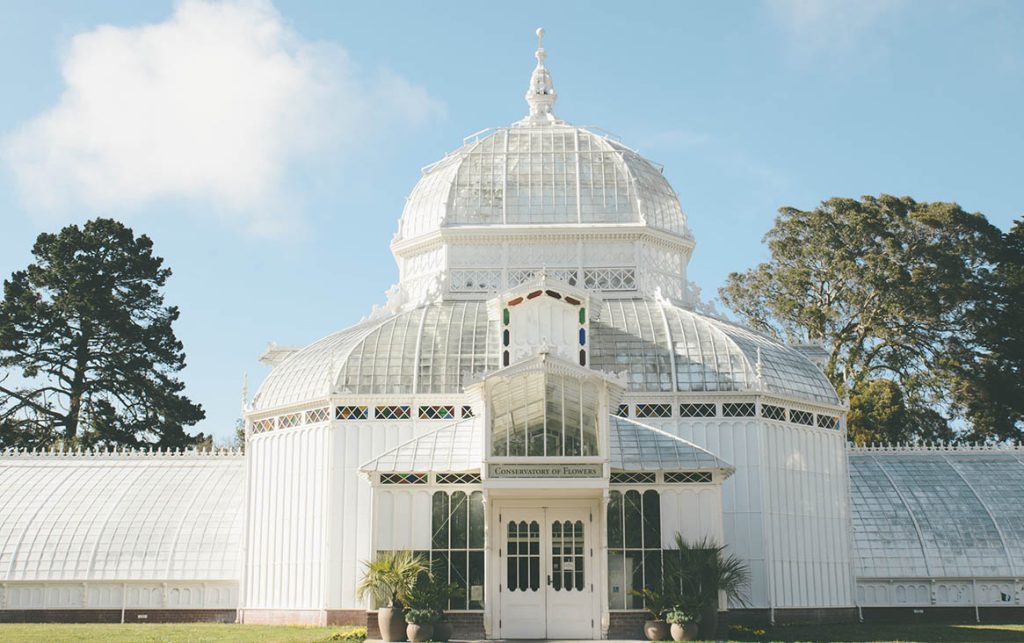
The historical charm of the conservatory is further enhanced by the presence of knowledgeable staff, ready to share insights into the diverse flora within its confines. Their expertise adds depth to the visit, providing a richer understanding of the botanical wonders sheltered beneath the ornate Victorian framework. However, the popularity of this landmark becomes evident during weekends when sizable crowds gather, impacting the desired tranquility promised by a garden oasis. Navigating the vast expanse of the park may also require strategic planning to ensure a comprehensive exploration without feeling rushed.
Situated within Golden Gate Park at 100 John F Kennedy Drive, San Francisco, the Conservatory of Flowers is easily accessible by both public transit and car, with multiple entry points facilitating a seamless arrival. The park’s commitment to accessibility is further exemplified by offering free admission to San Francisco residents on the first Tuesday of every month, encouraging local engagement with this botanical treasure.
Unlike some attractions that demand meticulous planning, the Conservatory of Flowers operates on a more relaxed policy. No reservations are required, allowing visitors to embrace spontaneity and immerse themselves in the allure of the Victorian-era greenhouse. To stay abreast of event schedules and special exhibits, a quick visit to the park’s official website proves invaluable, ensuring that one doesn’t miss any captivating floral displays or educational programs.
As I wandered through the Conservatory of Flowers, I couldn’t help but marvel at its role as a living testament to San Francisco’s unwavering dedication to preserving its historical landmarks. The timeless allure of the Victorian architecture, meticulously maintained and complemented by the diverse botanical wonders within, paints a vivid portrait of the city’s commitment to its rich heritage. In every bloom and every architectural detail, the Conservatory of Flowers stands as a celebration of San Francisco’s cultural tapestry and its harmonious coexistence with the natural world.
Cable Cars: Riding Through Time on Powell-Hyde Line
San Francisco’s iconic cable cars, particularly the Powell-Hyde line, are more than a mere mode of transportation; they are living remnants, linking the contemporary cityscape to its rich history. Embarking on this historical line, I found myself gripping the side of the cable car, swaying with the undulating terrain of the city. The rhythmic clanging of the cables, paired with sweeping views of the bay, created a sensory experience that transported me to a bygone era.
To truly embrace the quintessential San Francisco experience, riding the cable cars is imperative. Opting for the Powell-Hyde line is a deliberate choice for those seeking not just a practical commute but a visual feast. The journey encompasses iconic landmarks, including the renowned Lombard Street, and unfolds panoramic views of the city that are nothing short of spectacular.
The cable cars, with their vintage charm, deliver a nostalgic and scenic ride, resonating with the city’s distinctive character. However, this charm is not without its challenges. Long queues, particularly at popular starting points like Fisherman’s Wharf and Union Square, can be a test of patience for eager travelers. Despite the picturesque allure of the Powell-Hyde line, it may not be the most time-efficient mode of transport during peak hours, necessitating careful planning.
The Powell-Hyde Cable Car Line, with various stops along its route, becomes a mobile gateway to the city’s charm. Starting points strategically located at places like Fisherman’s Wharf and Union Square ensure accessibility. The prospect of long queues is mitigated by the availability of various passes, offering unlimited cable car rides within specific timeframes, providing flexibility for exploration.
Booking a ride on the cable cars is refreshingly straightforward. Reservations are unnecessary; instead, tickets can be conveniently purchased at designated locations or through user-friendly mobile payment options. This accessibility ensures that the experience remains spontaneous, allowing passengers to embrace the allure of cable car travel without the constraints of rigid planning.
Riding the cable cars transcended the ordinary; it was like stepping into a vintage postcard depicting the essence of San Francisco. The fusion of history, urban charm, and panoramic vistas transformed the journey into a passage through time, offering a unique perspective of the city’s topography. The cable cars, with their timeless appeal, emerge not just as a mode of transport but as integral storytellers, weaving the narrative of San Francisco’s evolution against the stunning backdrop of its iconic landmarks.
Recommendations for Future Explorations:
The San Francisco Maritime National Historical Park: Hyde Street Pier and Maritime Museum
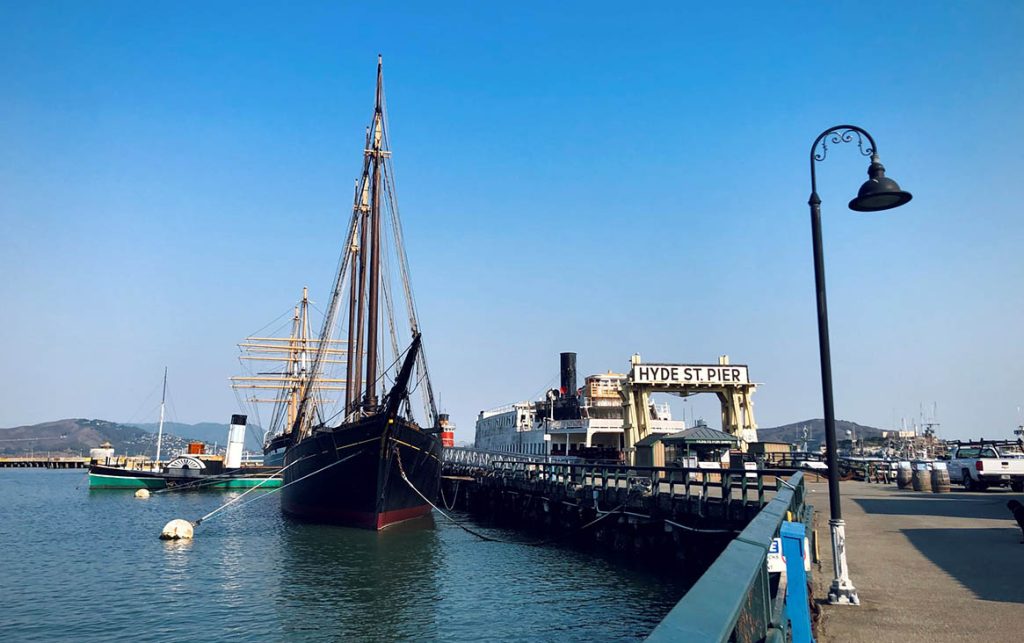
This maritime park is a treasure trove for maritime enthusiasts, featuring a historic fleet of ships at Hyde Street Pier and an engaging museum that delves into San Francisco’s maritime history.
Location: San Francisco Maritime National Historical Park, Hyde Street Pier.
Directions: Accessible by foot, public transit, or car.
Discounts: Free admission to the pier; fees may apply to special exhibitions.
Booking Platform: No reservations required for the pier; check the park’s official website for museum exhibit schedules.
Mission Dolores: The Oldest Standing Building in San Francisco
Mission Dolores, founded in 1776, is the oldest surviving structure in San Francisco. This historic mission offers a glimpse into California’s Spanish colonial past, with a beautifully preserved adobe church and cemetery.
Location: Mission Dolores, 3321 16th St, San Francisco.
Directions: Accessible by public transit or car.
Discounts: Admission fees may apply; check for any special events or free admission days.
Booking Platform: No reservations required; visit the mission’s official website for current information.
Chinatown: Gateway to the Past
San Francisco’s Chinatown is the oldest and one of the largest in North America. Stroll through its vibrant streets, explore historic landmarks like the Dragon Gate, and immerse yourself in the rich cultural heritage.
Location: San Francisco Chinatown, Grant Ave and Bush St.
Directions: Accessible by foot, public transit, or car.
Discounts: Free to explore, but various shops and attractions may have individual fees.
Booking Platform: No reservations needed; explore at your own pace.
The Painted Ladies: Victorian Architecture Showcase
The Painted Ladies, a row of colorful Victorian houses facing Alamo Square, are an iconic symbol of San Francisco. Admire these meticulously preserved and vibrant structures that epitomize the city’s architectural charm.
Location: Alamo Square, Steiner St & Hayes St, San Francisco.
Directions: Accessible by foot or car.
Discounts: Free to admire from the park; individual house tours may have fees.
Booking Platform: No reservations needed for park visits; check individual house tour options.
In the heart of San Francisco’s historical landmarks, the past comes alive, weaving a tapestry that tells the tales of resilience, innovation, and cultural diversity. From the somber halls of Alcatraz to the serene gardens of the Conservatory of Flowers, each site encapsulates a chapter in the city’s vibrant history.
Whether it’s the rhythmic clanging of cable cars echoing through the hills, the chilling whispers of former inmates at Alcatraz, or the timeless beauty of Victorian architecture in the Painted Ladies, San Francisco’s historical landmarks beckon with stories waiting to be discovered. Each step through these hallowed grounds is a step back in time, an opportunity to connect with the roots that have shaped this remarkable city.
